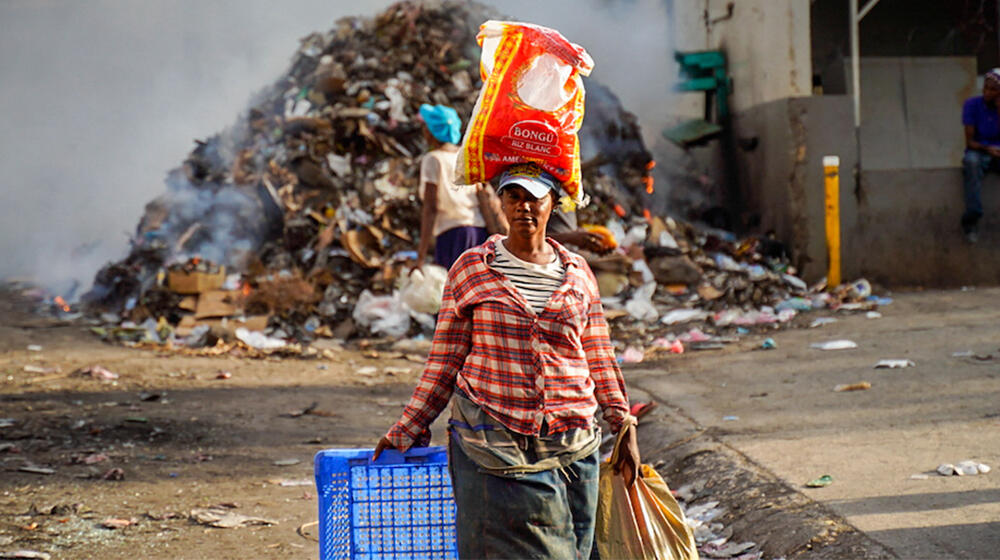Haiti is facing a humanitarian crisis like never before. Nearly half of the population – 5.2 million – need humanitarian aid and protection, with two out of five people going hungry every day. The crises that have deepened over the years – political instability, violence, economic and climate shocks, hunger, and poverty – have taken a disproportionate and unacceptable toll on women and girls.
Haiti, and especially the capital Port au Prince, has seen a surge in gang violence, with sexual and gender-based violence reaching alarming levels as gangs use rape to terrorize and subjugate populations. Despite the soaring needs, funding for protection services for women and girls is woefully inadequate - less than 2 percent of the total budget required for gender-based violence prevention and response under the Humanitarian Response Plan 2023.
The insecurity has sparked massive displacement, particularly in the capital. Thousands of women and girls have fled their homes, now living in makeshift shelters without access to basic services, and vulnerable to sexual exploitation and abuse. There have been reports of women giving birth without any medical assistance.
Pregnant women, breastfeeding mothers and girls have been left struggling to access services that are critical to their health, wellbeing and survival as Haiti’s health care system teeters on the brink of collapse. Hospitals and facilities have neither the capacity nor supplies to treat patients, and health personnel are leaving in droves. Access to health facilities for medical staff and those seeking treatment is severely limited in areas controlled by armed gangs, particularly in Port-au-Prince and Artibonite communes. Some organizations have been forced to close, reduce or relocate their services.
On top of all these crises, there has been a resurgence of cholera in the country at a time when many Haitians lack access to drinking water, sanitation and hygiene. This threatens the well-being of vulnerable populations, including pregnant and breastfeeding mothers.
As security permits, UNFPA is working with local partners to provide life-saving reproductive health and protection services to women and in girls through mobile clinics, women and girls’ safe spaces, community medical agents and outreach teams, and midwives. This includes psychosocial support and referrals for survivors of gender-based violence. Healthcare capacity is also being strengthened, including for the clinical management of rape, and medicines and equipment have been distributed to facilities in the capital.
In 2023, UNFPA is appealing for $9,750,000 to ensure that women and girls and survivors of violence can access the reproductive health and protection support they need.
Updated on 04 August 2023
https://www.unfpa.org/haiti-protection-crisis-women-and-girls


